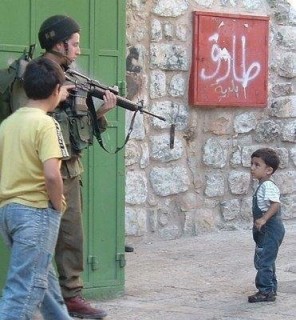
– Israel’s Aggression in Region Results in Lower Incidence of PTSD –
By Maayana Miskin
Compared to their counterparts around the globe, IDF soldiers are less likely to develop Post-Traumatic Stress Disorder (PTSD) due to combat, according to a study published in the most recent edition of official military magazine BaMachaneh.
The study compared research into PTSD in IDF soldiers to similar research done in other countries. Less than five percent of the soldiers who fought in the Second Lebanon War and in Operation Cast Lead in Gaza showed signs of post-traumatic stress, researchers found.
In comparison, between 15% and 30% of United States soldiers returning from Iraq and Afghanistan are believed to suffer from PTSD. Symptoms include flashbacks, outbursts of anger, nightmares and difficulty concentrating.
A captain familiar with the issue explained in the BaMachaneh report that one major difference between soldiers in Israel and those in America is that, in recent years, Israeli soldiers have faced shorter terms in active combat. Studies conducted in America have found that repeated tours of duty increase the risk for PTSD.
Another contributing factor is distance from home, the captain said. Foreign soldiers are often fighting thousands of miles from home, while IDF soldiers are often able to return home relatively frequently.
The captain also credited IDF officers’ awareness of the issue for the relatively positive findings. In recent years awareness of post-war PTSD, once known in Israel as “combat shock,” has grown, he said. More soldiers are seeking help, and officers are more aware that those in their command may need treatment, he explained.
Today’s numbers are lower than those seen in the past, he continued. Following the Six Day War, the Yom Kippur War, and the First Lebanon War, an estimated 10% of soldiers suffered PTSD.
The IDF has created a unit responsible for treatment of post-combat emotional and psychological issues. The unit receives an average of 14 new requests for help each month, and treats more than 200 people. The unit provides care to veterans of past wars as well as those who served in more recent clashes.
During Operation Cast Lead, IDF mental health officers aimed to diagnose and treat soldiers suffering symptoms of PTSD as quickly as possible. “If someone diagnoses and treats the disorder in the first month, he can prevent it from becoming a chronic condition,” the IDF captain explained.
Past studies conducted on former IDF prisoners of war found that religious POWs were at less risk of suffering severe psychological harm from the captivity than non-religious POWs.
ATTENTION READERS
We See The World From All Sides and Want YOU To Be Fully InformedIn fact, intentional disinformation is a disgraceful scourge in media today. So to assuage any possible errant incorrect information posted herein, we strongly encourage you to seek corroboration from other non-VT sources before forming an educated opinion.
About VT - Policies & Disclosures - Comment Policy



